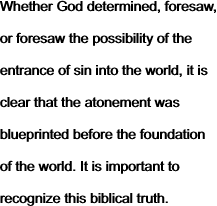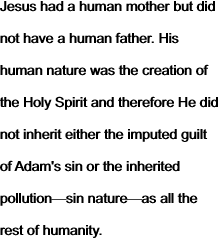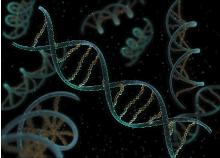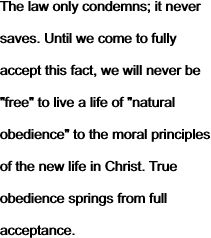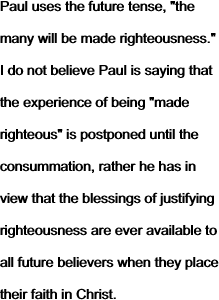 |
|
HOME | PROCLAMATION! MAGAZINE | DEVOTIONALS | STUDIES | LETTERS | ABOUT US | RELATED WEBSITES |
|
HOME / PROCLAMATION! MAGAZINE / 2008 / MARCH/APRIL / RATZLAFF
MARCH / APRIL 2008
VOLUME 9, ISSUE 2
A R T I C L E S
What is the meaning of the cross?
Dale Ratzlaff
Before exploring the meaning of Jesus' atonement, I want to start with an explanation of my hermeneutical presuppositions. First, I believe the New Testament explains the Old,1 but eternal truths are represented in both Testaments.2 In the Old Testament, however, truth is often represented in type3 or shadow,4 and these types and shadows are often less than the eternal truth to which they point. God set up the sacrificial system to teach truths regarding the coming redemption, and we should expect to find in these types and shadows something pointing to the greater truths of the atonement.
Second, I believe in the primacy of Scripture.5 There are many theologians today who look at the Old Testament types and shadows as bordering on paganism. Some believe that mature Christians have progressed far beyond the biblical pictures or models of the atonement. "Blood", they would say, no longer serves as a useful symbol of forgiveness. The forensic view of the atonement that stresses Christ's substitutionary life and death was necessary, they would say, for the legalistic Jews of Paul's day but should now be abandoned. Rather, some would have us focus primarily on knowing and trusting the loving character of God. Knowing God's character, they would say, is really all that is needed. However logical and philosophically appealing these concepts may be, this study will seek to discover what Scripture teaches: no more and no less. God's ways are not man's ways. After 39 chapters of long philosophical discussions in the book of Job,
"The Lord said, "Will the faultfinder contend with the Almighty? Let him who reproves God answer it." Then Job answered the Lord and said, "Behold, I am insignificant; what can I reply to You? I lay my hand on my mouth. Once I have spoken, and I will not answer; Even twice, and I will add nothing more" (Job. 40:5, 6).
I am not willing to go beyond what is written in Scripture. So right at the outset let me state that this article will be my best, albeit inadequate, attempt to bring meaning and harmony to the many biblical pictures and statements relative to the Atonement. Jesus is set forth as God's final word who is the radiance of God's glory and the exact representation of His nature, and upholds all things by the word of His power.6 Like Jude, we must "contend earnestly for the faith which was once for all handed down to the saints."7
Some months ago I told Colleen that I would like to write a gospel article for the Easter edition of Proclamation! Now, having studied the topic of the atonement for some time, I feel very much like the proverbial chipmunk which set out to gnaw down a giant sequoia tree. Where do I start on a project of this magnitude? Not only is the size of the project daunting, but trying to understand the various facets of the holiness, justice, love and mercy of God pushes one to the outer limits of human comprehension. We must come to grips with the magnitude and meaning of the sin of Adam, the original man. We must explore the meaning of forgiveness, ransom, redemption, propitiation and reconciliation and justification. We must ask why the death of Christ was required and by whom. Was God the Father punishing Christ for the sins of Adam? Why does sin even have to be punished? Can't we just come to know that God is love and forget the punishment thing as no longer relevant? To whom is the "price" of our redemption paid: to God or Satan? How does the death of Christ reverse not only Adam's sin but the sins of the whole world? What is revealed about the humanity of Christ? Did He take sinful or sinless humanity, and what difference does it make? Which view of the atonement is correct: sacrificial, moral Influence, commercial, legal or substitutional—or are all these different facets of one larger view?
The more I study to discover the glory of the cross, the more cautious I become. To peer too deeply into the throne room of the Almighty is to be blinded, as was Paul, by the glory of the living Christ. When we get a vision of God's Majesty we must with Isaiah cry out, "Woe is me, for I am undone!…For my eyes have seen the King, The LORD of hosts."
Therefore, as I make this feeble attempt to bring meaning and understanding to this grand and central theme of Scripture, it is with much tentativeness, recognizing that I am like a third-grader seeking to understand Einstein's E=MC2.
I have come to realize that the atonement is without doubt the most important, life-changing, God-honoring, complex and difficult truth of Scripture. There are so many facets that must be explored, yet individually focusing on one aspect of the atonement often makes God look like a monster. To see and experience the "glory of the cross" we must put all the puzzle pieces together in their right places to see "the Light of the knowledge of the glory of God in the face of Christ."8 The atonement can only be correctly understood in the revelation and understanding of the attributes of God.
Determined before the foundation of the world
Whether God determined, foresaw, or foresaw the possibility9 of the entrance of sin into the world, it is clear that the atonement was blueprinted before the foundation of the world.10 It is important to recognize this biblical truth. There are some who look at Scripture and the shadows and types of the coming atonement as only man's developing concept of God and not as the progressive revelation of God. As the central and most important truth of all time, however, the truth of the atonement is God's revelation.11 It is not a reflection of man's understanding.
The magnitude of Adam's sin
Adam's sin is set forth in Scripture as a voluntary historical act of enormous consequences that resulted in all mankind coming under the curse.12 He lost access to the tree of life.13 He lost his position as the ruler of this earth. The dominion given to Adam at creation was apparently delivered to Satan when Adam sinned, for Jesus mentions Satan as the "ruler of this world" on several occasions.14 Most importantly for our study, Adam's sin caused "the fall of man" meaning that all humans after that tragic event were born guilty and born polluted with a sinful nature. This inherent guilt resulted in death spreading to all men. We will come back to Paul's teaching in Romans later to show how Christ undid the terrible consequences of Adam's sin, but for now it is important in the context of Adam's sin to fully understand Paul's thought.
"Therefore, just as through one man sin entered into the world and death through sin, and so death spread to all men, because all sinned—for until the Law sin was in the world, but sin is not imputed when there is no law. Nevertheless death reigned from Adam until Moses, even over those who had not sinned in the likeness of the offense of Adam, who is a type of Him who was to come….For if by the transgression of the one, death reigned through the one…So then as through one transgression there resulted condemnation to all men…For as through the one man's disobedience the many were made sinners (Rom. 5:12–19).
In the above passage Paul makes it clear that there was no law between Adam and Moses,15 yet people who lived between Adam and Moses suffered death. He states this to show that Adam's sin not only caused Adam's own death but also the death of every person after that time. Adam's sin resulted in "imputed sin" and also "imparted sin" in that every son and daughter of Adam has a sinful nature and grows up not only with the imputed guilt of Adam, but also the inherited pattern of sin from infancy. This concept must be understood to comprehend all the facets of the atonement. The atonement of Christ, as we will see later, must take away the guilt of the "imputed sin" we received from Adam and also the guilt of our own sin that resulted from our many personal sins springing from our polluted, sinful nature. Note how Paul describes this sinful nature that all the children of Adam have:
"And you were dead in your trespasses and sins, in which you formerly walked according to the course of this world, according to the prince of the power of the air, of the spirit that is now working in the sons of disobedience. Among them we too all formerly lived in the lusts of our flesh, indulging the desires of the flesh and of the mind, and were by nature children of wrath, even as the rest (Eph. 2:1–3).
An understanding of the nature of Adam's sin and the resulting fall of humanity will also be important when we consider the nature of Christ. A misunderstanding here will completely undermine the biblical truth of the atonement. Considering the enormity of Adam's sin, we now turn to the holiness of God.
The holiness and love of God
Holiness is perhaps the chief attribute of God, and I believe it is the foundational key to interpreting rightly the many facets of the atonement.
"Holiness is self-affirming purity….Holiness is not self-communicating love, but self-affirming righteousness. Holiness limits and conditions love, for love can will happiness only as happiness results from or consists with righteousness, that is, with conformity to God" (Augustus H. Strong, Systematic Theology, p. 268, 713).
Holiness and sin cannot coexist unless other factors come into play. The appearance of the glory of God is like a "consuming fire."16 Isaiah says,
"I saw the Lord sitting on a throne, lofty and exalted, with the train of His robe filling the temple. Seraphim stood above Him, each having six wings: with two he covered his face, and with two he covered his feet, and with two he flew. And one called out to another and said, "Holy, Holy, Holy, is the LORD of hosts, The whole earth is full of His glory." And the foundations of the thresholds trembled at the voice of him who called out, while the temple was filling with smoke. Then I said, "Woe is me, for I am ruined! Because I am a man of unclean lips, And I live among a people of unclean lips; For my eyes have seen the King, the LORD of hosts" (Isa 6:1–5).
When Moses said, "I pray You, show me Your glory!" the Lord answered,
"I Myself will make all My goodness pass before you, and will proclaim the name of the LORD before you; and I will be gracious to whom I will be gracious, and will show compassion on whom I will show compassion. But He said, You cannot see My face, for no man can see Me and live!" (Ex. 33:18–20).
Because God is holy, sin must be eradicated.
Righteousness and truth, justice and mercy
While it is necessary at times to study a given attribute of God or facet of the atonement we must recognize that they never operate singly but always in concert harmony. God's holiness demands the eradication of sin. Yet his mercy reaches out in love to the sinner. His justice demands that the sinner reap the consequences of his own sin. His righteousness finds a way to do all this through the atonement that was blueprinted before the foundation of the world. This is a "God thing" that deserves our deepest study, devotion and worship.
"Lovingkindness and truth have met together; Righteousness and peace have kissed each other" (Ps. 85:10).
Adam was created in the image and likeness of God. Granted that God's likeness has been all but obliterated through thousands of years of sin, yet we see vestiges of His attributes in all societies. Today when we see horrible crimes on the evening news something within the human heart cries out for justice. Evil deserves punishment. Yet when justice sets out to inflict the legal sentence we often have a feeling of remorse and wish something could be done to save and redeem the offender. We feel the anger of the Israelis as the rockets rain down on them day after day. Then when we see the carnage of Israel's counter attack on the seemingly helpless Palestinians, we cry out for some humane solution. In this we see the longing of the human heart for justice and mercy, righteousness and truth. Like the Old Testament prophet, Habakkuk, we cry out, "O Lord…in wrath remember mercy" (Hab. 3:2).
Therefore, rather than dismissing the biblical elements of the atonement as something mature Christians should leave in the children's sandbox, let us drink deeply of "the living water" that will become like a river flowing from our innermost being.17
Christ the Second Adam—God in the flesh
The central core of the atonement is the substitution of the life and death of Jesus Christ for ours—His righteousness for our sin. However, before we unpack this concept we must thoroughly understand the nature of Christ. Was Christ's human nature like ours, weakened by 4,000 years of sin? As a human being did Christ inherit the guilt of the imputed sin of Adam? Was the humanity of Christ the same as the humanity of Adam before or after the fall? Was the man Christ Jesus actually the Lord God Almighty—fully God sharing in eternity the same essence as God? Or, was Jesus the first of God's creation who was later promoted to be God? Was Jesus once Michael the archangel? These are vitally important questions, and they must be answered thoroughly from Scripture, or we will come up with the wrong concept of the atonement and a wrong understanding of the gospel.
The importance of the virgin birth
When the angel came to Mary and told her that she was going to have a son,
"Mary said to the angel, 'How can this be, since I am a virgin?' The angel answered and said to her, 'The Holy Spirit will come upon you, and the power of the Most High will overshadow you; and for that reason the holy Child shall be called the Son of God'" (Lk. 1:35).
Note that Jesus is called "the holy Child" and the "Son of God". Jesus had a human mother but did not have a human father. His human nature was the creation of the Holy Spirit and therefore He did not inherit either the imputed guilt of Adam's sin or the inherited pollution—sin nature—as all the rest of humanity. The record of Scripture is clear and must be accepted as truth.
"Now the birth of Jesus Christ was as follows: when His mother Mary had been betrothed to Joseph, before they came together she was found to be with child by the Holy Spirit (Mt. 1:18).
"But when he had considered this, behold, an angel of the Lord appeared to him in a dream, saying, 'Joseph, son of David, do not be afraid to take Mary as your wife; for the Child who has been conceived in her is of the Holy Spirit'" (Mt. 1:20).
"Now all this took place to fulfill what was spoken by the Lord through the prophet: 'BEHOLD, THE VIRGIN SHALL BE WITH CHILD AND SHALL BEAR A SON, AND THEY SHALL CALL HIS NAME IMMANUEL,' which translated means, 'GOD WITH US'" (Mt. 1:22, 23).
The absolute sinlessness of Christ is a foundational truth of Christianity.
"He made Him who knew no sin to be sin on our behalf, so that we might become the righteousness of God in Him (2 Cor. 5:21).
"And He who sent Me is with Me; He has not left Me alone, for I always do the things that are pleasing to Him." (Jn. 8:29).
"For we do not have a high priest who cannot sympathize with our weaknesses, but One who has been tempted in all things as we are, yet without sin" (Heb. 4:15).
"For it was fitting for us to have such a high priest, holy, innocent, undefiled, separated from sinners and exalted above the heavens (Heb. 7:26).
"But with precious blood, as of a lamb unblemished and spotless, the blood of Christ" (1 Pet. 1:19).
"WHO COMMITTED NO SIN, NOR WAS ANY DECEIT FOUND IN HIS MOUTH" (1 Pet. 2:22).
"For Christ also died for sins once for all, the just for the unjust, so that He might bring us to God, having been put to death in the flesh, but made alive in the spirit" (1 Pet. 3:18).
We see, then, that Christ as the sinless Second Adam recaptures the position as head of the human family. He was totally pure, holy, undefiled, and separate from sinners.
Jesus—fully God.
The atonement rests not only on the perfect sinlessness of the human nature of Christ but also, and equally important, on His full deity. Again we note the clear and undisputed teaching of Scripture.
"For a child will be born to us, a son will be given to us; And the government will rest on His shoulders; And His name will be called Wonderful Counselor, Mighty God, Eternal Father, Prince of Peace" (Isa. 9:6).
"In the beginning was the Word, and the Word was with God, and the Word was God" (Jn. 1:1).
"Jesus said to them, 'Truly, truly, I say to you, before Abraham was born, I am'" (Jn. 8:58).18
"For in Him all the fullness of Deity dwells in bodily form" (Col 2:9).
"'If you had known Me, you would have known My Father also; from now on you know Him, and have seen Him.' Philip said to Him, 'Lord, show us the Father, and it is enough for us.' Jesus said to him, 'Have I been so long with you, and yet you have not come to know Me, Philip? He who has seen Me has seen the Father; how can you say, 'Show us the Father?'" (Jn. 14:7–9).
The demonstration of God's righteousness
We now come to the heart of our study found in Romans 3:21–26. Let us take one verse at a time and squeeze all we can from this most important passage and drink deeply from the sweet fountain of the grace of God.
3:21 "But now apart from the Law the righteousness of God has been manifested, being witnessed by the Law and the Prophets."
Paul shows that the "righteousness of God" is not something found in the Torah. Even though the Torah had its types and shadows pointing toward the "righteousness of God", the manifestation of this righteousness took place outside the setting of the old covenant. This is the same truth we find in John 1:17, "For the Law was given through Moses; grace and truth were realized through Jesus Christ." We also note that Paul is not talking about the "righteousness of the law"; rather, Paul refers to the higher, perfect "righteousness of God" that only one who is sinless in nature and conduct can demonstrate; only the God-man, Jesus Christ, is able to manifest the righteousness of God.
3:22 "even the righteousness of God through faith in Jesus Christ for all those who believe; for there is no distinction."
This one short verse is filled with gospel! The very "righteousness of God" comes to us "through faith in Jesus Christ" and it is for all who believe. He extends the reach of "all" by adding, "there is no distinction." There is no limited atonement here! But this is not universalism; it is only for those who place their faith in Jesus Christ.
3:23 "for all have sinned and fall short of the glory of God."
In Romans 1:18–3:19 Paul has demonstrated that the Gentile sinners, the people who live a moral life, and the Jews who were recipients of the law and the old covenant revelation are all under the guilt of sin. As children of Adam all are under the imputed guilt and imparted pollution of sin. "Fall short" is in the present continuous tense in Greek indicating that we all continue to fall short of God's glory. This alone spells doom for any who would seek reconciliation with God by any works of their own.
3:24 "being justified as a gift by His grace through the redemption which is in Christ Jesus."
What does it mean to be justified? Justification is a legal, forensic term denoting a judicial act of declaring a verdict of acquittal and so excluding all possibility of condemnation. Justification thus settles the legal status of the person justified.19 Justification determines the whole character of Christianity as a religion of grace and faith. It makes clear what faith is—belief in Christ's atoning death and justifying resurrection. Martin Luther said "a church that lapses from it can scarcely be called Christian".20 Justification is a "gift". It cannot be earned or deserved. It comes only by God's grace, which is unmerited favor, and the channel is "through the redemption which is in Christ Jesus."
Redemption, too, is a word rich with meaning. It revolves around a payment of a ransom. Liberal theologians would have us dismiss this "picture" of salvation as a primitive aspect of the atonement. Yet it runs through the revelation of God from ancient times to the majestic song of triumph in the book of Revelation. The Old Testament is saturated with the concept of redemption and ransom,21 and it is central to the atonement presented in the New Testament.
"Just as the Son of Man did not come to be served, but to serve, and to give His life a ransom for many" (Mt. 20:28).
"There is one God, and one mediator also between God and men, the man Christ Jesus, who gave Himself as a ransom for all, the testimony given at the proper time (1 Tim. 2:5,6).
"Be on guard for yourselves and for all the flock, among which the Holy Spirit has made you overseers, to shepherd the church of God which He purchased with His own blood (Act. 20:28).
And they sang a new song, saying, "Worthy are You to take the book and to break its seals; for You were slain, and purchased for God with Your blood men from every tribe and tongue and people and nation (Rev. 5:9).
Redemption, ransom, and purchase are the words of God's revelation of salvation. They are key facets of the atonement. Note that the price paid for our redemption is the precious blood of Christ.
"Knowing that you were not redeemed with perishable things like silver or gold from your futile way of life inherited from your forefathers, but with precious blood, as of a lamb unblemished and spotless, the blood of Christ (1 Pet. 1:18, 19).
Today we are far removed from the blood of sacrifice. Many churches have taken out the old Christian hymns that speak of the blood of Christ. We must ever remember it is not what we think of the blood that counts. Rather, it is God's estimation of the blood and what it represents that is of value. In the infinite wisdom of God before the foundation of the world the details of the atonement were worked out in such a way that God could be just and the justifier of the one who places his faith in Christ. I for one do not want to look into the face of my Savior who hung on the cross with his life-blood dripping down for my sin and disdain that precious blood. The following verses should settle once and for all the issue of redemption, ransom, and the price of the precious blood of Christ.
"Therefore, brethren, since we have confidence to enter the holy place by the blood of Jesus" (Heb. 10:19).
"His eyes are a flame of fire, and on His head are many diadems; and He has a name written on Him which no one knows except Himself. He is clothed with a robe dipped in blood, and His name is called The Word of God" (Rev. 19:12, 13).
"How much severer punishment do you think he will deserve who has trampled under foot the Son of God, and has regarded as unclean the blood of the covenant by which he was sanctified, and has insulted the Spirit of grace? For we know Him who said, 'VENGEANCE IS MINE, I WILL REPAY.' And again, 'THE LORD WILL JUDGE HIS PEOPLE.' It is a terrifying thing to fall into the hands of the living God" (Heb. 10:29, 30).
3:25 "Whom God displayed publicly as a propitiation in His blood through faith. This was to demonstrate His righteousness, because in the forbearance of God He passed over the sins previously committed" (Rom. 3:25).
In this verse we grapple with a number of the facets of the atonement. It was necessary for God to make a public display of the death of Christ. It is set forth as a "propitiation in His blood through faith." Here again liberal theologians would dismiss the concept of propitiation as a primitive concept to be abandoned. Yet we find it is the very heart of the atonement. Propitiation is a turning away of wrath by an offering.22 This can only be understood in the realization that all the activities of the atonement take place within the Trinity. A literal reading in Greek is, "God did set forth for himself Jesus Christ".23 The multiple attributes of God working together in perfect harmony found a way to punish the sin and let the sinner go free in a way that satisfied God's holiness, grace, mercy, love, justice, righteousness and wrath against sin. God also provided a way for the sinner to be ultimately reunited with the heavenly family without the guilt and pollution of sin.
God not only satisfied His own need for righteousness, but He demonstrated it by making a public display of Christ on the cross. From the time of Adam to the cross the real consequences of sin had been passed over. True, the shadows and types provided a way that the sinner could be forgiven, but the propitiation, the payment for sin, had only been rolled ahead like a revolving charge account year after year.
The Old Testament Day of Atonement served as a shadow of two aspects of the atonement.
"He shall take from the congregation of the sons of Israel two male goats for a sin offering and one ram for a burnt offering" (Lev. 16:5).
Note that both goats were "for a sin offering".
"He shall take the two goats and present them before the LORD at the doorway of the tent of meeting. Aaron shall cast lots for the two goats, one lot for the LORD and the other lot for the scapegoat. Then Aaron shall offer the goat on which the lot for the LORD fell, and make it a sin offering. But the goat on which the lot for the scapegoat fell shall be presented alive before the LORD, to make atonement upon it, to send it into the wilderness as the scapegoat (Lev. 16:7–10).
Some teach that the scapegoat represents Satan. Personally, after thorough study, I feel this is the height of blasphemy. Note the following points:
• Both goats were without blemish.
• Both goats were "for a sin offering".
• The "Lord's goat" was slain representing the means by which sin could be forgiven. It was the ransom, the price paid that settled the legal issues.
• Atonement was made over the scapegoat, and it was sent into the wilderness representing the effects of the sin offering. The sins of the people were in type removed from their presence!
"But in those sacrifices there is a reminder of sins year by year. For it is impossible for the blood of bulls and goats to take away sins (Heb. 10:3, 4).
Therefore, unless one is willing to make Satan their "sin offering" and make Satan an active participant in the atonement for their sin, Satan cannot be represented by the scapegoat. Rather, what we have here is a representation in type and shadow of two different aspects of the atonement of Christ. (1) Christ died for our sin providing the means by which sin could actually be forgiven24 and, (2) while Christ is the epitome of sinlessness, He was made to be sin for us.25 This aspect of the atonement was prefigured when,
Then the LORD said to Moses, "Make a fiery serpent, and set it on a standard; and it shall come about, that everyone who is bitten, when he looks at it, he will live" (Num. 21:8).
Later Jesus used this shadow to explain the gospel to Nicodemus.
"As Moses lifted up the serpent in the wilderness, even so must the Son of Man be lifted up; so that whoever believes will in Him have eternal life" (Jn. 3:14,15).
The scapegoat represented Christ, and as the sin bearer He carried away our sin once and for all. "He himself took our infirmities and carried away our diseases."26 The writer of Hebrews alludes to Christ as the scapegoat.
"Therefore Jesus also, that He might sanctify the people through His own blood, suffered outside the gate. So, let us go out to Him outside the camp, bearing His reproach (Heb. 13:12, 13).
There are a number of "pictures" of this same truth.
"As far as the east is from the west, So far has He removed our transgressions from us (Ps. 103:12).
"You will cast all their sins into the depths of the sea (Mic. 7:19).
Yes, in God's forbearance He passed over sins previously committed. However, at the cross He made a public display of the means and the effects of that atonement that satisfied the righteousness of God and freed us from the condemnation of guilt and sin.
3:26 "for the demonstration, I say, of His righteousness at the present time, so that He would be just and the justifier of the one who has faith in Jesus.".
Paul makes it clear it was at the cross where God made the demonstration of His righteousness. The new covenant community is not to look back into the types and shadows to evaluate God, sin, or righteousness. Neither are we to look to some future last day remnant people who will perfectly keep the law to demonstrate God's justice in the way He runs His universe. Rather, all this was demonstrated "at the present time"—in the Christ event. There and there alone do we find public demonstration that God is both just and the justifier of the one who has faith in Jesus. John records Jesus' last words as "It is finished."27
3:27 "Where then is boasting? It is excluded. By what kind of law? Of works? No, but by a law of faith.
We must underline in our thinking that the demonstration of God's attributes resulting in the atonement were made outside of the old covenant and were made within the Trinity without any participation of mankind. This demonstration had nothing to do with the law of works. Our inclusion into the blessings of the atonement is solely the result of God's grace, mercy, and love. The only condition for our inclusion into the benefits of the atonement is our faith in Christ.
3:28 "For we maintain that a man is justified by faith apart from works of the Law."
Independent legalism runs in our veins as part of our inheritance from Adam. Paul, guided by the Holy Spirit, understood, as did Luther, that the Christian must be eternally vigilant against the toxic effect of trying to make ourselves acceptable to God through obedience to the Law. The law only condemns; it never saves. Until we come to fully accept this fact, we will never be "free" to live a life of "natural obedience" to the moral principles of the new life in Christ. True obedience springs from full acceptance. That is why we always fail if we seek sanctification or holy living before we understand and accept justification by faith which completely rules out all condemnation.28 This declaration of "not guilty" is achieved always and only as an unmerited gift of God's grace when we respond in faith and reach out our unworthy hand and take the priceless gift. Then, as fully accepted members of God's family—"saints in Christ Jesus"—we are admonished to live like the kind of persons we now are in Christ.
The legacy of the Second Adam
Let us go back to Romans 5 and consider what we left out the first time through. We saw that Adam's sin resulted in passing on to all mankind both the imputed guilt and the pollution of a sinful nature. Let us now discover how Christ reversed the terrible legacy of Adam.
5:14, 15 "Nevertheless death reigned from Adam until Moses, even over those who had not sinned in the likeness of the offense of Adam, who is a type of Him who was to come. But the free gift is not like the transgression. For if by the transgression of the one the many died, much more did the grace of God and the gift by the grace of the one Man, Jesus Christ, abound to the many."
Here and in the following verses, Paul contrasts both the similarities and differences between Adam and Christ. In every instance we will see that Christ's work of grace in reversing Adam's work of sin is "much more". Christ's redemptive "work" supersedes Adam's sin in both result and scope. In reality, this passage introduces not a comparison but a contrast between the scope and effect of Adam's sin and the much greater scope and effect of Christ's work.
5:16 "The gift is not like that which came through the one who sinned; for on the one hand the judgment arose from one transgression resulting in condemnation, but on the other hand the free gift arose from many transgressions resulting in justification.
Judgment on Adam's sin resulted in his condemnation and the condemnation of all his posterity. However, the "free gift"—note the emphasis on grace by the repeated concept—had its foundation in "many transgressions" in which Christ was not involved. While there is a cause and effect relationship between Adam, judgment and condemnation, there is no such relationship between the "many transgressions" that would result in justification. Rather, justification comes from outside the realm of cause and effect and has its source only and ever in God's "free gift" of grace. Here the imputed sin of Adam and the resulting condemnation is reversed by God's free grace which results in the legal declaration of justification.
5:17 "For if by the transgression of the one, death reigned through the one, much more those who receive the abundance of grace and of the gift of righteousness will reign in life through the One, Jesus Christ."
The emphasis in this verse centers on the superabundant results occurring to those who receive the grace and gift of righteousness. We will reign in life through Jesus Christ. Here we see cause and effect. If we receive the abundance of grace and of the gift of righteousness then we will reign in life through Jesus Christ. While the focus of Paul's thought in Romans 5 is on the legal aspect of condemnation and justification, nevertheless I believe we have a foreshadowing of what Paul will develop in Romans 6–8. Namely, when we accept the gift of God's justifying grace we are also delivered from the reign or controlling power of sin. We become new creatures29 in Christ Jesus, and as such we are to:
"Consider yourselves to be dead to sin, but alive to God in Christ Jesus" (Rom. 6:11).
"Put on the new self, which in the likeness of God has been created in righteousness and holiness of the truth" (Eph. 4:24).
5:18–19 "So then as through one transgression there resulted condemnation to all men, even so through one act of righteousness there resulted justification of life to all men. For as through the one man's disobedience the many were made sinners, even so through the obedience of the One the many will be made righteous."
Paul shows conclusively that Christ as the Second Adam reversed the tragic results of the first Adam. "The many" who will be made righteous, are those who receive the gift of grace provided to all. Paul uses the future tense, "the many will be made righteousness." I do not believe Paul is saying that the experience of being "made righteous" is postponed until the consummation, rather he has in view that the blessings of justifying righteousness are ever available to all future believers when they place their faith in Christ. I believe he also widens his thought to include both justifying righteousness—the present declaration of God—and the moral righteousness that is developed in our lives by the Holy Spirit as we daily live "in Christ." Both find their geneses in the free gift of God's grace.
5:20, 21 "The Law came in so that the transgression would increase; but where sin increased, grace abounded all the more, so that, as sin reigned in death, even so grace would reign through righteousness to eternal life through Jesus Christ our Lord."
"Between Adam and Christ stood Moses…Law, says Paul, was added, the verb showing that it held no primary place. Its purpose was that the trespass might increase. It was not concerned with preventing sin (it was too late for that). Nor was it concerned with salvation from sin (it was too weak for that). The law can only condemn…Paul does not say that the "trespasses" increased; it is what sin essentially is that the law magnified. Paul is not concerned with minor distinctions among grades of evil. The important thing is at the end of clause—grace increased all the more."30
The cross of Christ—the pinnacle of human history
The cross stands at the pinnacle of human history. It was on this very mount that over a thousand years before, the aged Abraham placed his only son, the son whom he loved,31 on the altar of sacrifice. He stood ready with knife-raised hand, when suddenly God spoke, "Do not stretch out your hand against the lad, and do nothing to harm him."
"Then Abraham raised his eyes and looked, and behold, behind him a ram caught in the thicket by his horns; and Abraham went and took the ram and offered him up for a burnt offering in the place of his son. Abraham called the name of that place The LORD Will Provide, as it is said to this day, "In the mount of the LORD it will be provided" (Gen. 22:13, 14).
Jesus said, "Your father Abraham rejoiced to see My day, and he saw it and was glad."32 For Abraham and for us, substitution stands at the heart of the atonement.
He made Him who knew no sin to be sin on our behalf, so that we might become the righteousness of God in Him (2 Cor. 5:21).
Consider all the facets of the atonement; its legal and moral consequences; the scope of redemption purchased by the precious blood of Christ; the condescension of God becoming man; the rejection from the people He came to save; the betrayal and denial by his own apostles; the sufferings of Christ in the garden; the cruel mob; the unjust trial; the mocking of those for whom He was providing salvation; the pain and humiliation of the cross; experiencing the ultimate wrath of God—separation from His Father, "Why have you forsaken me?" The repentant Peter who was commissioned by the Risen Lord to feed the flock of God records:
"While being reviled, He did not revile in return; while suffering, He uttered no threats, but kept entrusting Himself to Him who judges righteously; and He Himself bore our sins in His body on the cross, so that we might die to sin and live to righteousness; for by His wounds you were healed. For you were continually straying like sheep, but now you have returned to the Shepherd and Guardian of your souls (1 Pet. 2:22).
"For God so loved the world, that He gave His only begotten Son, that whoever believes in Him shall not perish, but have eternal life" (Jn. 3:16).
With hearts overflowing with thankfulness, let us join our voices with the throng of the redeemed.
"Worthy is the Lamb that was slain to receive power and riches and wisdom and might and honor and glory and blessing." And every created thing which is in heaven and on the earth and under the earth and on the sea, and all things in them, I heard saying, "To Him who sits on the throne, and to the Lamb, be blessing and honor and glory and dominion forever and ever" (Rev. 5:12–13).
I'm forgiven, because You were forsaken,
I'm accepted, You were condemned.
I'm alive and well, Your spirit lives within me,
Because you died and rose again.
Amazing love, how can it be?
That You, my King, would die for me.
Amazing love, I know its true.
It's my joy to honor you in all I do.33 †
Endnotes
- God, after He spoke long ago to the fathers in the prophets in many portions and in many ways, in these last days has spoken to us in His Son, whom He appointed heir of all things, through whom also He made the world (Heb. 1:1–2).
- Now these things happened to them as an example, and they were written for our instruction, upon whom the ends of the ages have come (1 Cor. 10:11).
- Rom. 4:15; Heb. 11:9.
- Col. 2:17; Heb. 8:5; 10:1.
- Jn. 10:35; 19:28; Gal. 3:8; 2 Tim. 3:16; 2 Pet 1:20.
- Heb. 1:1–3.
- Jud. 1:3.
- 2 Cor. 4:6.
- Whether you are a Calvinist, Armenian or somewhere in between.
- Jn. 17:24; Eph. 1:4; 1 Pet 1:20.
- Col. 1:26, 27.
- Gen. 3:14–24.
- Gen. 3:24.
- Jn. 12:31; 14:30; 16:11.
- There were eternal moral principles in play during this time.
- Ex. 24:17; Heb. 12:29.
- See. Jn. 7:38.
- This is an obvious reference to Jesus claiming to be the "I AM", the self-existent one mentioned in Exodus 3.
- See Water A. Elwell, Evangelical Dictionary of Theology, p. 593.
- Ibid.
- Ex. 21:30; 30:12; Num. 3:46, 48, 49, 51; Job 33:24; Ps. 69:18; Isa. 50:2; Hos. 13:14.
- See Water A. Elwell, Evangelical Dictionary of Theology, p. 888.
- R.C.H. Lenski, Commentary on the New Testament, Romans, p. 255.
- Heb. 10:12.
- 2 Cor. 5:21.
- Mat. 8:17.
- Jn. 19:30.
- Rom. 8:1.
- Gal. 6:15.
- Leon Morris, The Epistle to the Romans, p. 241, 242.
- Gen. 22:2.
- Jn. 8:56.
- Words and Music: Billy Goote © 1996 Worshiptogether.com
![]()
Copyright 2008 Life Assurance Ministries, Inc., Glendale, Arizona, USA. All rights reserved. Revised September 24, 2008. Contact email: proclamation@gmail.com
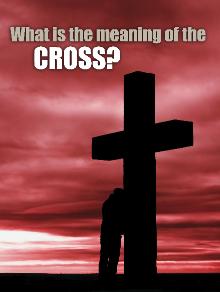
 Dale Ratzlaff is the founder of Life Assurance Ministries, Inc, and owns LAM Publications, LLC. He served as an Adventist pastor for 13 years, seven at Monterey Bay Academy where he taught Bible. He and his wife Carolyn left the Adventist church in 1981 when he realized he could no longer teach the investigative judgment in clear conscience. He has authored Sabbath in Christ, The Cultic Doctrine of Seventh-day Adventists, The Truth About Seventh-day Adventist "Truth", and Adventist to Christian. These are available through his website, LifeAssuranceMinistries.com.
Dale Ratzlaff is the founder of Life Assurance Ministries, Inc, and owns LAM Publications, LLC. He served as an Adventist pastor for 13 years, seven at Monterey Bay Academy where he taught Bible. He and his wife Carolyn left the Adventist church in 1981 when he realized he could no longer teach the investigative judgment in clear conscience. He has authored Sabbath in Christ, The Cultic Doctrine of Seventh-day Adventists, The Truth About Seventh-day Adventist "Truth", and Adventist to Christian. These are available through his website, LifeAssuranceMinistries.com.
